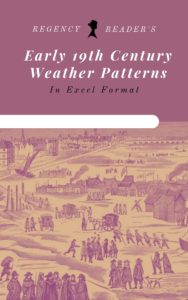With the US Census rapidly approaching, I am thinking about counting people and its origins.
On March 10, 1801 the first British Census was held. The first part counted the number of people, their occupations, and numbers of families and houses. The second part collected numbers of baptisms, marriages, and burials as a proxy for population increase or decreases. This information was gathered by census enumerators who were either local overseers of the poor or schoolmasters and done by visiting individual homes.
The results were that England had 8.33 million people, Scotland 1.6 million and Wales 541,546. There were also 324,630 people in the British Armed Forces, 144,558 people in the British Merchant Navy and 1,410 convicts onboard prison hulks.
These efforts were championed starting in the late 1790s by statistician John Rickman and continued every ten years after that first 1801 census (with the exception of 1941). There is now talk at the Office of National Statistics that after 2021, the UK will no longer take a census, but instead mine for data in other ways (https://www.ons.gov.uk/census/censustransformationprogramme/administrativedatacensusproject).
Rickman advocated for the census with the following justifications:
- “the intimate knowledge of any country must form the rational basis of legislation and diplomacy”
- “an industrious population is the basic power and resource of any nation, and therefore its size needs to be known”
- “the number of men who were required for conscription to the militia in different areas should reflect the area’s population”
- “there were defence reasons for wanting to know the number of seamen”
- “the need to plan the production of corn and thus to know the number of people who had to be fed”
- “a census would indicate the Government’s intention to promote the public good”, and
- “the life insurance industry would be stimulated by the results”.
Many suggest that the military rationale was the strongest considering the Napoleanic threat.
Nonetheless, its an interesting social scientific breakthrough to begin to quantify and qualify people on this scale and part of the rapidly industrializing complex of the UK.
For more on the UK Census: https://www.thehistorypress.co.uk/articles/counting-the-united-kingdom-the-census-from-1086-to-now/









